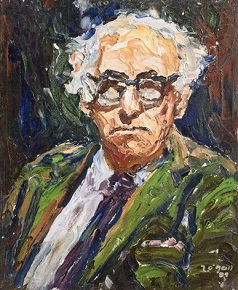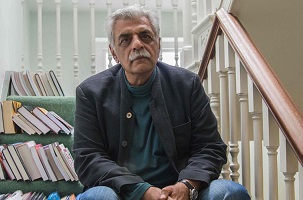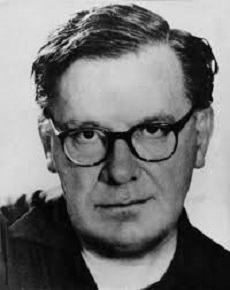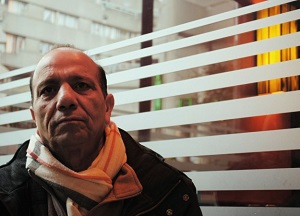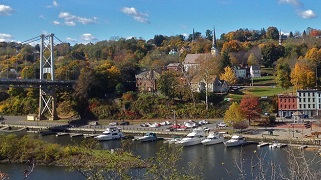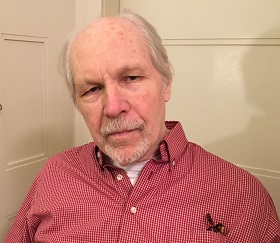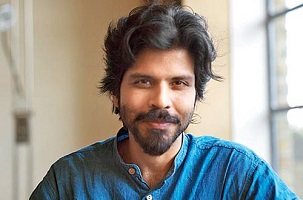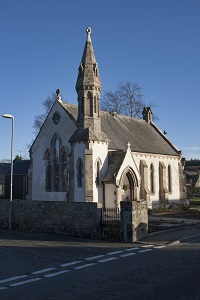Dolce far niente
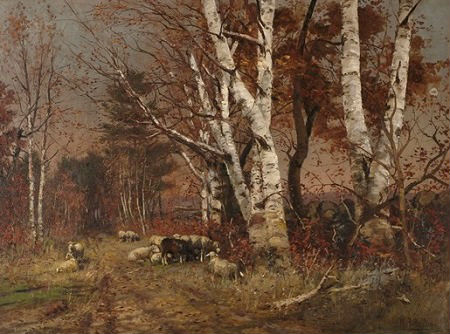
Sheep grazing along a country road amongst a stand of birch trees door William Preston Phelps (1848-1923), z.j.
Kil
De herfst wordt nu kil.
De meeste bomen houden hun groen vol,
maar de berken, van vorm en tint toch al ijl,
slinken tot geesten.
Hun schemerende skeletten zijn behangen
met dunne gouden munten waar de zon doorheen schijnt,
versleten dukaten die zullen
vallen op vochtige hollandse zandgrond.
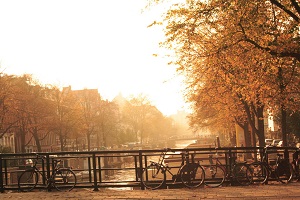
Hans Andreus (21 februari 1926 – 9 juni 1977)
Amsterdam, de geboorteplaats van Hans Andreus
De Nederlandse dichter, columnist en schrijver Martin Bril werd geboren in Utrecht op 21 oktober 1959. Zie ook alle tags voor Martin Bril op dit blog.
Uit: De rode jurk
“Het was in zo’n zomervakantie waar maar geen einde aan komt dat ik met hem bevriend raakte. Jaap Wagenaar. Er was iets met hem. Hij had geen moeder, en zijn vader een vriendin. Jaap had altijd pillen op zak. Van die ronde, witte. En soms geheimzinnige blauwgele capsules die je als je het voorzichtig deed uit elkaar kon schroeven. Dan kwam er poeder uit. Hij was ouder dan ik. Er ging iets dreigends van hem uit, en ook iets zieligs, omdat hij zo duidelijk eenzaam was. Hij had blond haar dat slordig op zijn hoofd stond, een spits gezicht. Brutale blauwe ogen. Een tanige jongen. Ik bewonderde hem. Jaap op zijn beurt zag ook iets in mij. Hij liet mij tenminste vaak zijn pillen zien. Na een tijdje nam hij me mee naar zijn huis.
Draaiden we platen.
Led Zeppelin. T-Rex.
Luisterden we naar de radio. Raar, maar we deden eigenlijk niets. Jaap vertelde stoere verhalen over het tehuis in Groningen waar hij een blauwe maandag in had gezeten. Zijn moeder was toen net dood, en zijn vader had nog geen vriendin. Jongens die slingerend als apen aan de lampen door de eetzaal vlogen, slaapzalen waar ’s avonds iedereen lag te rukken. Het leek wel een film. Tegen vijven zaten we met de vriendin van zijn vader in de woonkamer en kregen we een biertje waar ik misselijk van werd. De vriendin kon niet koken. Ze aten bijna altijd Chinees dat Jaap moest ophalen, zijn vader kwam pas thuis als het donker was, of helemaal niet. Soms bleef ik eten, maar meestal moest ik naar huis. Het waren landerige dagen, de zomer op z’n retour.
Op een middag gingen we naar Groningen. Liften. We waren er zo. Het was warm. Jaap gaf me een bruine pil die hij van zijn vader had gepikt. Daar werd je wat sneller van. Ik merkte niets. Ik hoopte dat Jaap me het tehuis zou laten zien, maar het kwam er niet van. We liepen alleen maar op en neer door de Herenstraat, aten een saucijzebroodje bij de Hema en kwamen in de hoerenbuurt terecht. Het was een slome middag, weinig hoeren. Hier en daar zat er eentje voor een raam te gapen of haar nagels te lakken. Ik durfde nauwelijks te kijken. Het broodje kwam naar boven.
We belandden in een café. Een rokerig, oud kaal hol met een jukebox en een nurkse man achter de bar. We gingen bij het raam zitten en keken naar buiten.”
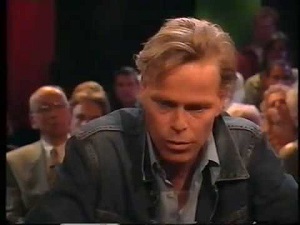
Martin Bril (21 oktober 1959 – 22 april 2009)
De Nederlandse schrijfster Doeschka Meijsing werd geboren in Eindhoven op 21 oktober 1947. Zie ook alle tags voor Doeschka Meijsing op dit blog.
Uit: Dagboek
“11 augustus 1995 Inleiding
Wat is spel? Wat is werkelijkheid? Het onderscheid tussen die twee is voor mij sinds een paar jaar zo onbelangrijk geworden dat zelfs de vraag er niet meer toe doet. Toch blijft zij kwellen, de kop opsteken. Dat wil zeggen dat de vraag op een antwoord wacht, gedurende alle achter mij liggende jaren. Speelt de kwestie omdat men – ook ik – steeds meer belangstelling heeft voor het autobiografische element in fictie? Dit in tegenstelling tot bijvoorbeeld in Shakespeares tijd? Maar nee, ook Constantijn Huygens schreef autobiografisch over zijn Sterre. En daarom heb ik die grote zeventiende-eeuwer altijd bijzonderder gevonden dan Vondel of Hooft. Was Fellini autobiografisch? Ongetwijfeld in zijn film Amarcord. Maar in 8½ of La Strada? Of Satyricon? Allemaal verbeelding, alles spel, verkleedpartijen, droom.
Zijn er twee soorten schrijvers, filmers, acteurs? Zij die uitdrukking willen geven aan hun allereigenste emoties en ervaringen en zij die juist een situatie en een personage willen creëren waarin en waarmee een ander gestalte krijgt, een andere wereld die wellicht enige helderheid biedt in het raadsel dat ze voor zichzelf zijn?
Je moet wel een evenwichtkunstenaar zijn om op de eerste vraag van vandaag het antwoord te kunnen doorstaan. Ik ben daar slecht in: val dan weer aan de ene kant van het touw, dan weer aan de andere kant eraf. Maar ik blijf altijd met één voet aan de draad haken en klauter weer naar boven.
Hoeveel oprechtheid over zichzelf kan iemand aan? Veel, denk ik – niet tot eigen genoegen overigens.
De enige vraag waar ik echt een antwoord op weet is: waarom schrijf ik sinds jaar en dag een dagboek, vol onbenulligheden, weersbeschrijvingen, voorvallen die er eigenlijk niet toe doen, grote en kleine emoties, gigantische en minuscule ruzies? Vroeger dacht ik dat het was om in het bejaardenhuis, oud en versleten, mijn leven te kunnen overzien. Nu weet ik dat dat niet zo is, want als ik sporadisch iets nalees, om de datum van de eerste landing op de maan na te zoeken bijvoorbeeld, of het plotseling opduiken van een stier genaamd Herman, interesseert het geschrevene me op geen enkele manier. Het antwoord op de vraag luidt: om elke ochtend de hand te oefenen, opdat het blanco papier niet tot obsessie wordt. Omdat ik verliefd ben op een hand met een vulpen erin die letters en woorden tovert.”
Doeschka Meijsing (21 oktober 1947 – 30 januari 2012)
De Nederlandse dichter Daan Doesborgh werd geboren op 21 oktober 1988 in Steyl. Zie ook alle tags voor Daan Doesborgh op dit blog.
Man van rabarber
Mijn voeten zijn slepende moordmachines
van slijten en buigen
slijten en verschuiven, kraken
slijten en vouwen en kreuken
Mijn hoofd is een plooienpot.
een mondjesmaat gewatteerde schedel
een stormram van zorg
een gemsbok van koppige donder
dus laat maar
ik ben een man van rabarber
een ring van stenen als een klok
rond mij neergelegd
ik ben een moederstuinen man
ik ben van vaders herfstbladeren
de bolsters van mijn broer tot naald
aaneen genaaid
Ik ben je lappenpop om weg te gooien
laat maar
ik ben een man van rabarber,
laat maar, nu hoeft het al niet meer.
Mijn handen hadden met de jouwe willen praten
ik had mijn wanten in je mond willen stoppen
waar je speeksel en je kaken ze tot karbonades
hadden kunnen maken
ik had nog zoveel willen zeggen maar ik
ik ben een sneeuwpop van zwijgen
ik ben een man van half af
ik ben een man van achteraf
dus je zei ga maar
jij bent een man van rabarber
hier heb je zeilen van krantenpapier
hier zijn mijn elektrische beloftes om mee te nemen
als je gaat kom ik je met stoffer en blik achterna
ga maar
ik zal je voetstappen snel van de stoeptegels vegen
heus niet om mijn dorp van je schoon te maken nee
maar om ze liefdevol te bewaren
want weet je
ik ben een vrouw
van een man van rabarber
ik ben een meisje van bamboe
wie luistert naar mijn ruisen meent daar woorden in te kennen
maar wie luistert naar mijn ruisen hoort
ruis
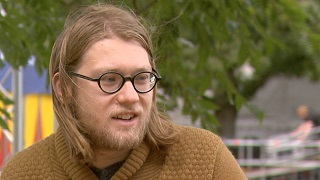
Daan Doesborgh (Steyl, 21 oktober 1988)
De Franse dichter en schrijver Alphonse de Lamartine werd geboren op 21 oktober 1790 in Mâcon. Zie ook alle tags voor Alphonse de Lamartine op dit blog.
Le lac (Fragment)
” Aimons donc, aimons donc ! de l’heure fugitive,
Hâtons-nous, jouissons !
L’homme n’a point de port, le temps n’a point de rive ;
Il coule, et nous passons ! “
Temps jaloux, se peut-il que ces moments d’ivresse,
Où l’amour à longs flots nous verse le bonheur,
S’envolent loin de nous de la même vitesse
Que les jours de malheur ?
Eh quoi ! n’en pourrons-nous fixer au moins la trace ?
Quoi ! passés pour jamais ! quoi ! tout entiers perdus !
Ce temps qui les donna, ce temps qui les efface,
Ne nous les rendra plus !
Éternité, néant, passé, sombres abîmes,
Que faites-vous des jours que vous engloutissez ?
Parlez : nous rendrez-vous ces extases sublimes
Que vous nous ravissez ?
Ô lac ! rochers muets ! grottes ! forêt obscure !
Vous, que le temps épargne ou qu’il peut rajeunir,
Gardez de cette nuit, gardez, belle nature,
Au moins le souvenir !
Qu’il soit dans ton repos, qu’il soit dans tes orages,
Beau lac, et dans l’aspect de tes riants coteaux,
Et dans ces noirs sapins, et dans ces rocs sauvages
Qui pendent sur tes eaux.
Qu’il soit dans le zéphyr qui frémit et qui passe,
Dans les bruits de tes bords par tes bords répétés,
Dans l’astre au front d’argent qui blanchit ta surface
De ses molles clartés.
Que le vent qui gémit, le roseau qui soupire,
Que les parfums légers de ton air embaumé,
Que tout ce qu’on entend, l’on voit ou l’on respire,
Tout dise : Ils ont aimé !
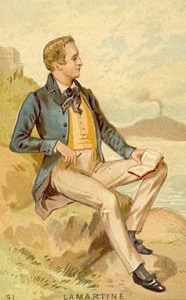
Alphonse de Lamartine (21 oktober 1790 – 28 februari 1869)
De Engels dichter en criticus Samuel Taylor Coleridge werd geboren op 21 oktober 1772 in Ottery St. Mary, Devonshire. Zie ook alle tags voor Samuel T. Coleridge op dit blog.
Sonnet VIII. To Mercy
Not always should the tear’s ambrosial dew
Roll its soft anguish down thy furrowed cheek!
Not always heaven-breathed tones of suppliance meek
Beseem thee, Mercy! Yon dark Scowler view,
Who with proud words of dear-loved Freedom came–
More blasting than the mildew from the south!
And kissed his country with Iscariot mouth;
(Ah! foul apostate from his Father’s fame!)
Then fixed her on the cross of deep distress,
And at safe distance marks the thirsty lance
Pierce her big side! But oh! if some strange trance
The eye-lids of thy stern-browed Sister press,
Seize, Mercy! thou more terrible the brand,
And hurl her thunderbolts with fiercer hand!
Sonnet XV. To Schiller
Schiller! that hour I would have wished to die,
If thro’ the shudd’ring midnight I had sent
From the dark Dungeon of the Tower time-rent
That fearful voice, a famished Father’s cry–
That in no after moment aught less vast
Might stamp me mortal! A triumphant shout
Black Horror screamed, and all her goblin rout
From the more with’ring scene diminished past.
Ah! Bard tremendous in sublimity!
Could I behold thee in thy loftier mood,
Wand’ring at eve with finely frenzied eye
Beneath some vast old tempest-swinging wood!
Awhile with mute awe gazing I would brood,
Then weep aloud in a wild ecstasy!
Sonnet XX
The piteous sobs that choke the Virgin’s breath
For him, the fair betrothed Youth, who les
Cold in the narrow dwelling, or the cries
With which a Mother wails her Darling’s death,
These from our Nature’s common impulse spring
Unblamed, unpraised; but o’er the piled earth,
Which hides the sheeted corse of gray-haired Worth,
If droops the soaring Youth with slackened wing;
If he recall in saddest minstrelsy
Each tenderness bestowed, each truth impressed;
Such Grief is Reason, Virtue, Piety!
And from the Almighty Father shall descend
Comforts on his late Evening, whose young breast
Mourns with no transient love the aged friend.
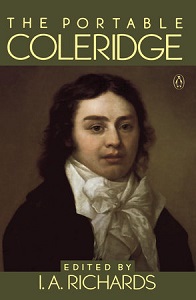
Samuel T. Coleridge (21 oktober 1772 – 25 juli 1834)
Cover
Zie voor nog meer schrijvers van de 21e oktober ook mijn vorige blog van vandaag.

